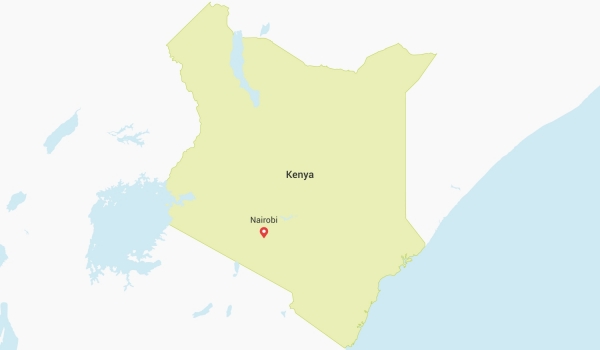During the course of the closed Ruto/Sang trial, several prosecution witnesses were reportedly killed, disappeared or withdrew from the case, or recanted their testimony. For the first time in ICC history, prosecution witnesses summoned to the Court were ultimately deemed ‘hostile’ by judges. The defense, meanwhile, argued the witnesses were coached and given financial incentives to testify. The prosecution’s allegations fall in line with reports of Kenya’s failures to cooperate with the prosecution’s investigation and with Kenya’s political and diplomatic efforts to interfere with judicial decision-making throughout the different stages of the Ruto proceedings.
ICC judges reject Kenya’s challenges to admissibility and jurisdiction of case
In March 2011, Kenya challenged the admissibility of the ICC case against Ruto and Sang (and Kosgey). It claimed that the country was undergoing a comprehensive legal and judicial reform and intended to investigate and prosecute the cases domestically. In rejecting the challenge, Pre-Trial Chamber II found there were no such ongoing domestic proceedings with respect to the three ICC suspects. The Appeals Chamber confirmed this decision in August 2011.
On 30 August 2011, the defense for Ruto and Sang challenged the Court’s jurisdiction over the case, arguing that the level of organization and structure within which the crimes were allegedly committed did not reach the requisite level for crimes against humanity under the Rome Statute. Pre-trial judges rejected the jurisdiction challenge on 23 January 2012.
Judges decide hearings to take place in The Hague
On 15 July 2013, the plenary of ICC judges rejected a joint defense request to hold the trial in Kenya or Tanzania. For such a move to be adopted, at least two-thirds of the 18 judges needed to vote in favor of it. The judges stated that they took into consideration the security and cost of holding proceedings outside The Hague, the potential impact on victims and witnesses, as well as the potential impact on the perception of the Court.
Presence at trial the rule, absence the exception
On 25 October 2013, the Appeals Chamber unanimously reversed Trial Chamber V(a)’s decision to excuse Ruto from continuous presence at his trial. Judges found that the Chamber had interpreted the scope of its discretion to excuse attendance too broadly, and that absence should an exceptional measure decided on a hearing-by-hearing basis. The ruling came just ahead of the 13th ASP session, during which states adopted a Kenyan proposal to change the Court’s rules to allow those mandated to fulfill "extraordinary public duties at the highest national level" to request excusal from presence at trial.
Applicability of amended rule 68—a matter for ICC judges
In 2015, trial judges agreed to the prosecutor’s request to use an amendment to rule 68 of the ICC’s Rules of Procedure and Evidence (RPE) to present during trial pre-recorded testimony from five prosecution witnesses who had recanted their statements. Both Ruto and Sang appealed the decision, arguing that the ICC’s governing body, the Assembly of States Parties (ASP), had explicitly decided when it amended rule 68 in November 2013 that the amendment would not apply in trials that had already begun—the Ruto/Sang trial opened 10 September 2013.
As the Appeals Chamber was considering the matter, Kenya pressured States Parties to include in a report of the 14th ASP session in November 2015 an interpretation of the amended rule, affirming it could not be applied retroactively. While including the requested Kenyan language in the final report created no legal obligations for states or the ICC, civil society strongly condemned Kenya’s attempt to have the Assembly influence the decision-making of independent ICC judges
In February 2016, the Appeals Chamber decided that trial judges had erred in finding the pre-recorded testimony admissible in the Ruto/Sang case, pointing to Rome Statute provisions on non-retroactivity and the fact that the rule amendment was adopted after the opening of the trial. Presiding Judge Piotr Hofmanski, however, stressed that the Chamber’s decision was based solely on the Statute’s prohibition on retroactive application of rule changes that are to the detriment of the accused. Judge Hofmanski further noted that the drafting history of the ASP’s amendment did not reveal that it could not be applied to pending cases as argued by Kenya.
Civil society defends ICC independence and no immunity under Rome Statute
While the Rome Statute provisions excluding immunity based on official capacity remained untouched during the 12th ASP session, civil society expressed grave concern at the political campaign that led to the new rules on the appearance of sitting heads-of-state at trial, noting it risked undermining the ICC’s independence. In the run-up to 13th ASP, civil society also strongly opposed a proposal by the Kenyan government to amend the Rome Statute to allow immunity for heads-of-state and high government officials.
Read more on Kenya’s anti-ICC campaign - See Kenya country page


